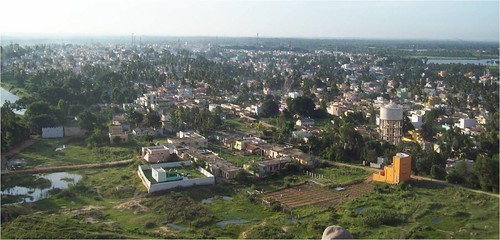/sub-categories/research-papers
Research Papers
Wastewater management: A case study of Tiruchirapalli city in Tamil Nadu
Posted on 28 Jan, 2013 11:43 AMAny form of liquid waste discharged by domestic residents, industries, agriculture and commercial establishments into water is called a wastewater. This water contains different quantities of contaminants which pollutes water and makes it unfit for any productive or domestic use. Set against the backdrop of dire need for effective and efficient management of wastewater, this paper is a case study of Tiruchirapalli city in Tamil Nadu. The analysis provided in the paper is an outcome of the field work carried out in the city, which emphasises for developing a strategy for the management of wastewater.
Towards self-reliance and access to safe drinking water and secure sanitation in north Bihar: A report by Megh Pyne Abhiyan
Posted on 27 Jan, 2013 11:48 AMWastewater irrigation in Hubli–Dharwad, Karnataka, enables farmers to diversify their cropping practices - A paper in the Environment and Urbanisation Journal
Posted on 26 Jan, 2013 06:47 PMThis paper 'Wastewater irrigation in Hubli–Dharwad, India: I
Cost recovery in urban water services: Select experiences in Indian cities- A report by Water and Sanitation Program
Posted on 18 Jan, 2013 09:05 PMThe report draws on the report by Water and Sanitation Program (WSP) study from 2008 which made a comparative analysis of 23 urban local bodies (ULBs)—looking at seven cities in detail and another 16 based on secondary data to understand the factors affecting cost recovery.
Water resources in India under changed climate scenario- A paper in International Journal of Engineering Research and Applications
Posted on 18 Jan, 2013 07:41 PMThe paper in its introduction states that the shortage for fresh water is becoming a limiting factor for the socio-economic development of many countries.
Effect of drinking arsenic-contaminated water in children- Article in Indian Journal of Public Health
Posted on 09 Jan, 2013 10:44 PMThis paper in Indian Journal of Public Health sheds light on the specific impact of arsenic on health of children based on the review of literature on the subject. The effects of chronic arsenic toxicity under the following aspects:
- Psychological
- Skin abnormalities
- Lung diseases
- Defect in intellectual function
- Genetic issues
Is your neighbourhood a 'dirty picture' ?: The growing garbage crisis and 10 ways in which you can help
Posted on 06 Jan, 2013 02:13 PM‘A potato peel, a piece of paper and a plastic packet’: The story of garbage
Let’s begin with a story of the journey of our junk, in a typical Indian city.
Impact of pit-toilet leachate on groundwater chemistry and role of vadose zone in removal of nitrate and E. coli pollutants in Kolar District, Karnataka, India
Posted on 04 Jan, 2013 02:00 PMGiven the many problems associated with flush toilets and the sewerage system, pit toilets offer a viable solution in India. However, the use of soakpits raises the question of groundwater contamination. This paper assesses the impact of pit toilet leachate on groundwater quality in Mulbagal town (pop ~ 60,000) in Karnataka relies on pit toilets, and uses groundwater for drinking.
A growing concern - How soon will India run out of water - Paper published in the Journal of Global Health
Posted on 29 Dec, 2012 05:33 PMThe paper informs that groundwater accounts for about 50%-80% of domestic water use and 45%-50% of the irrigation in the country.
Briefing papers on ‘Jal kothis’, ‘Matka filter’, 'Dug wells' and ‘Phayedemand shauchalaya’: Local innovative solutions in flood prone Bihar by Megh Pyne Abhiyan (2011)
Posted on 29 Dec, 2012 03:14 PMThe briefing papers include the following:
